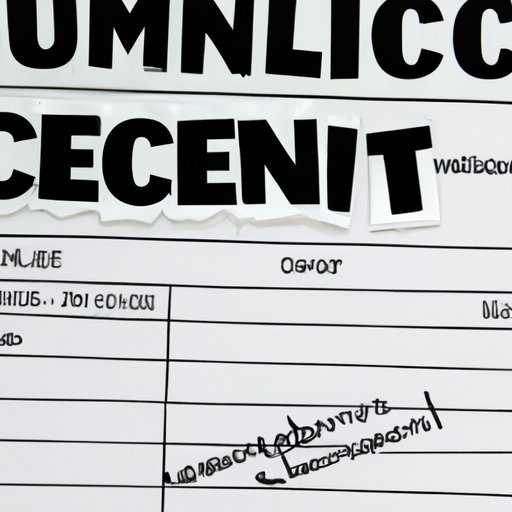Introduction
Expunging a record is a legal process that allows individuals to have certain records in their past erased or removed from public view. This is an important step for those looking to move on with their lives and start over without the burden of their past mistakes. In this article, we will explore what expungement is, the steps to take to expunge your record, different types of records that can be expunged, common questions about expungement, the benefits associated with it, and potential challenges you may encounter.
Outlining the Steps to Expunging Your Record
The process of expunging your record involves several steps. First, you must identify the type of record that needs to be expunged. Different states have different laws and regulations, so it is important to research the laws and regulations in your state. Once you have identified the record that needs to be expunged, you must file a petition with the court. After filing the petition, you may need to attend a court hearing. Finally, you will need to await a decision from the court.

Exploring Different Types of Records That Can Be Expunged
There are several different types of records that can be expunged, including criminal records, arrest records, conviction records, and juvenile records. Depending on the state you live in, some of these records may be easier to expunge than others. It is important to research the laws in your state to determine which records can be expunged.

Addressing Common Questions About Expunging Your Record
When considering expunging your record, there are several common questions that may arise. One of the most commonly asked questions is what is the difference between sealing and expunging a record. Sealing a record means that the record is hidden from public view, but it is still accessible to law enforcement and other government agencies. Expunging a record means that the record is completely erased from all public databases. Another common question is how long does it take to expunge a record. The answer to this question depends on the state you live in and the type of record being expunged. Finally, another common question is whether expungement is available in all states. The answer to this question is no, as not all states allow expungement.
Examining the Benefits of Expunging Your Record
Expunging your record can have many benefits. For example, it can increase your chances of finding employment, improve your housing options, and provide greater educational opportunities. Additionally, expungement can help restore your reputation and improve your standing in the community.

Highlighting Potential Challenges Associated with Expunging Your Record
Although there are many benefits to expunging your record, there are also potential challenges associated with the process. The first challenge is the cost associated with expunging a record. Depending on the state you live in, the cost can range from hundreds to thousands of dollars. Additionally, it can be difficult to find legal representation to assist you with the process. Finally, there is always the possibility that your petition to have your record expunged could be denied by the court.
Providing Resources for Further Information on Expunging Your Record
If you are looking for more information on expunging your record, there are several resources available. State-specific websites and resources can provide valuable information, as can online forums and support groups. Additionally, there are several legal aid organizations that provide free or low-cost assistance for those looking to expunge their record.
Conclusion
Expunging your record can be a complicated process, but the rewards are worth the effort. By taking the time to research the laws and regulations in your state, filing a petition to have your record expunged, attending a court hearing, and awaiting a decision from the court, you can open up a world of new opportunities. Understanding the different types of records that can be expunged, addressing common questions about expungement, exploring the benefits associated with it, and highlighting potential challenges can help you make an informed decision about whether expunging your record is right for you.
(Note: Is this article not meeting your expectations? Do you have knowledge or insights to share? Unlock new opportunities and expand your reach by joining our authors team. Click Registration to join us and share your expertise with our readers.)
